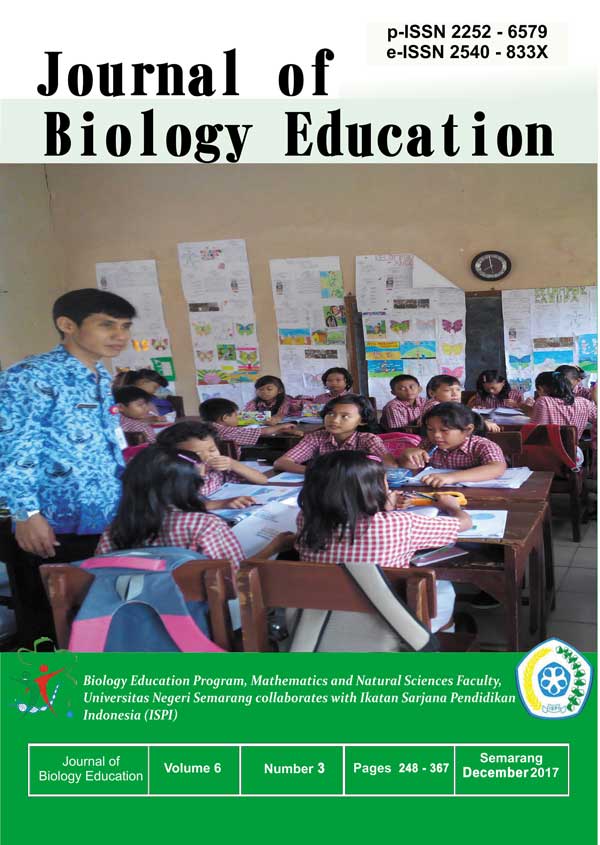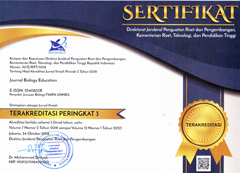Analisis Keterlaksanaan Problem Based Learning dan Hubungannya dengan Kemampuan Higher Order Thinking Siswa
Abstract
Problem based learning (PBL) aims to form student’s problem-solving, which require ananalysis, evaluation, and creation abilities (Higher order thinking or HOT). Implementation of PBL is often used, but has not been analyzed based on syntax and its characteristics. The sample of the study consisted of 53 students divided into two classes XI MIPA 1 and XI MIPA 4. Data sources include the observation’s results of learning in the classroom, student feedback questionnaire, student answers on questions HOT, teacher’s questionnaires and interviews. Data were analyzed by descriptive percentage and pearson correlation. The result showed that all phases of PBL’s syntax is well implemented. The investigation, development & presentation, and the analysis of the problem-solving process are well implemented, but it is excellent on student organizing and problem-orientation phases. As much as of 20,13% of students had an ecxellent HOT, 57,86% is good, 16,98% is fair, and 5,03% is poor. The correlation between PBL implementation and HOT capability is 0,36 which is categorized positive but weak.
The copyright of the article once it is accepted for publication shall be assigned to the journal as the publisher. The intended copyright includes the right to publish the article in various forms (including reprints). The journal maintains the publishing rights to the published articles.
This work is licensed under a Creative Commons Attribution 4.0 International License.








